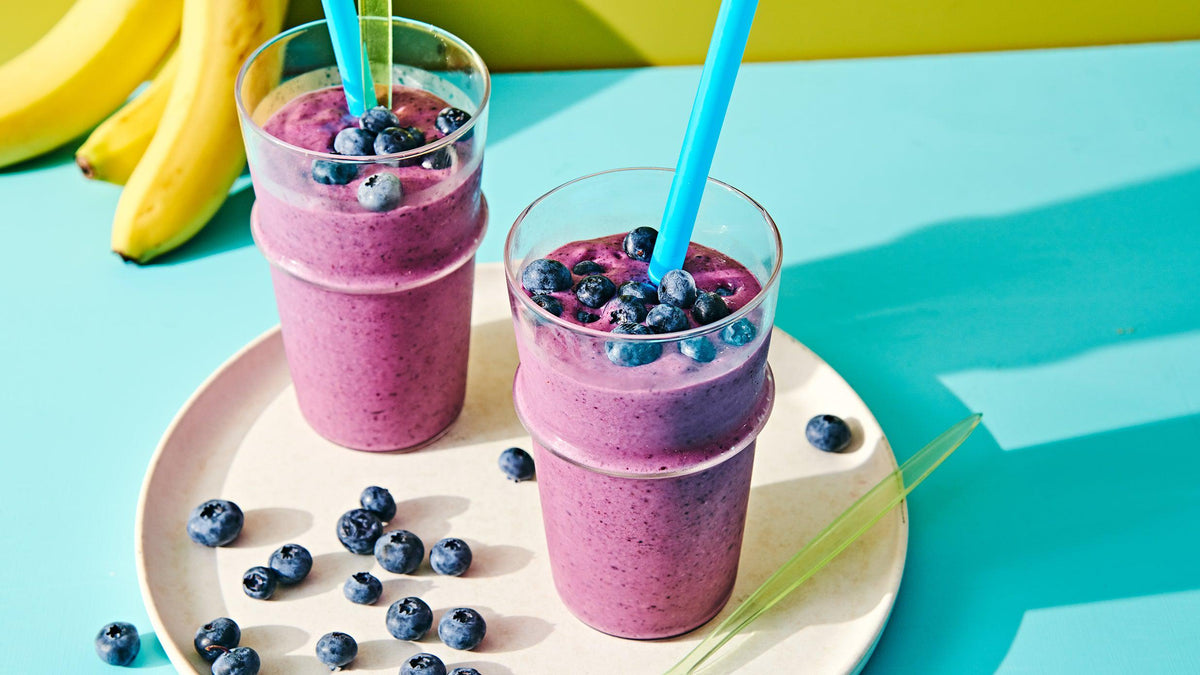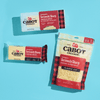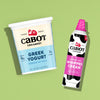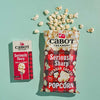
5 Nutrient Dense Meal & Snack Recipes for Back-to-School
Brierley Horton, M.S., RD is a dietitian nutritionist, content creator and strategist, and avid mental health advocate. She is co-host and co-creator of the Happy Eating podcast, which breaks down the connection between food and mental wellness.
When it comes to so-called “essential nutrients,” the USDA Dietary Guidelines outline specifically what macro- and micronutrients kids should be getting in their diet daily. Think: protein, carbs, fat (all macronutrients), vitamins, and minerals like iron, calcium, etc. (all micronutrients)
Yes, the whole list of nutrients is important. I wouldn’t deserve to call myself a dietitian if I said anything otherwise. (Sorry, parents, we know you don’t want another thing on your to-do list these days.) But there are a handful of nutrients that research shows many of our kids fall short on. They’re not necessarily deficient in these nutrients, but they could stand to have more in their diets. What’s more, each of these plays a key role in physical growth, cognitive development, and/or emotional wellness—further underscoring their importance in this back-to-school season of life.
So, which nutrients are they? And how can you get more of these nutrients into your school-aged kids’ diet? Keep reading!
One more thing before you dive in! In fact, this might be the most important takeaway. What your kid’s or kids’ diets looks like over the course of a week is far more important than nitpicking every single day (or feeling guilty as a parent for wishing you had done better). So if one day doesn’t go your way, it’s absolutely OK—you have 6 days left in the week.
How to Get More Nutrition in Your Kids’ Diets
Now, about those nutrients to focus on this back-to-school season. There are 7—and they are:
● Calcium
● Vitamin D
● Potassium
● Fiber
● Iron
● B Vitamins
● Vitamin C
Then, to help you squeeze more of these valuable nutrients into your kids’ meals, we culled a list of our favorite kid-friendly, nutrition-packed recipes to help you get more out of each meal, snack, even dessert.
Blueberry Yum Yum Smoothie
For breakfast, snack, or just because, this smoothie delivers protein, calcium, vitamin D, a touch of iron, a lot of fiber, and some B vitamins.
Protein is particularly important at breakfast—it’s more filling than carbs or fat and will help fuel your kid all the way to the lunchroom. The calcium in this smoothie is important for bone health—yes—but also calcium does much more. For instance, it plays a key role in making some hormones (and particularly mood-related ones like serotonin). Nutritious breakfast recipes will help get the school day started right.
Getting some vitamin D with that calcium is important because the two nutrients work together. And, like calcium, vitamin D has a very important role in a lot of other processes: it is involved in brain development and function, as well as your immune system—and vitamin D has anti-inflammatory properties.
Tomato & Cheddar Sliders
We like to make a batch of these and use them throughout the week in lunches or for after-school snacks. They’re a delicious delivery device for some potassium and vitamin C, as well as calcium, protein, and a little bit of fiber. If tomatoes aren’t popular with your crew, swap in avocado slices, deli turkey, or slices of cooked bacon.
Potassium is one of those nutrients that many of us—kids and adults—fall short on. Most of us aren’t deficient in potassium, but get insufficient amounts of it. Potassium is so important because we need it everywhere in our bodies as it’s required for everyday cell function. But also potassium helps our body balance out the sodium we eat (and most of us eat more sodium than what’s recommended). The potassium in this recipe comes from the tomatoes, and if you swap them for avocado, you’ll still get potassium. Better yet, double up!
It's important to have lots of nutritious lunchbox ideas for when the kids head back to school. With a little planning, we can make sure that they also have the fuel they need for the busy school days ahead!
Mini Taco Cups
Make these for an after-school snack or pack them in a lunchbox for protein, iron, fiber, and some B vitamins. When you add salsa, you get some potassium and vitamin C, too!
The turkey and the beans in this recipe both deliver iron. Iron is important for kids because it supports their growth—physically and neurologically. It also shuttles oxygen throughout the body, which is key for running around during recess or in PE class, or playing sports. And while that salsa might not be overflowing with vitamin C, it’s that time of year when we want to make sure we have enough. That’s because vitamin C supports a healthy immune system—and back to school equals back to germs. Also, C has everyday functions: for instance, it's an antioxidant that mops up harmful free radicals throughout the body and it helps your body metabolize protein. We all know healthy afternoon snacks for kids are essential to keep their day going smoothly.
Greek Yogurt Chocolate Pudding
We gave pudding a protein upgrade by using Greek yogurt in this recipe. There’s also fiber, vitamin D, iron, and a whole lot of calcium in this pudding.
Just one serving of this pudding delivers 4½ grams of fiber—that’s 50% of what a 5-year old needs in a day and ⅓ of what a 10-year old needs in a day. Here’s some more good news: if you’re paying attention to potassium, you’re also inherently paying attention to fiber. That’s because many of the potassium-rich foods—like fresh and dried fruits, beans, leafy greens, and even flaxseeds—are also good sources of fiber. Fiber helps us stay regular, it also feeds the good bacteria in our GI tract, and it promotes heart health.
Kitchen Sink Cookies
Yes, cookies can deliver much-needed nutrients, too. This might be the most delicious way to sneak some B vitamins (thanks to nuts and cheese) into your kiddo’s day. Plus, they’ll get some protein and calcium.
B vitamins are particularly important for kiddos because they are involved in helping their bodies—and brains—use the calories they eat. (There are actually a handful of B vitamins—riboflavin (B2), niacin (B3), folate (B9), vitamin B12, and more—but we’re lumping them together here because many of them help break down food into usable energy.) Kids need to be as efficient as possible in using the calories they eat. For example, it’s estimated that a 5-year-old brain uses up to 50% of their body’s energy, and a 12-year old’s brain burns 30%.
Like many things in life, we strive for progress not perfection. Start by adding one nutrient-dense snack or meal into your child's diet and continue to add from there. The key is balance, by adding essential nutrients into foods that are fun and familiar you're creating healthy habits and the building blocks that kids need, especially during back-to-school season!


















